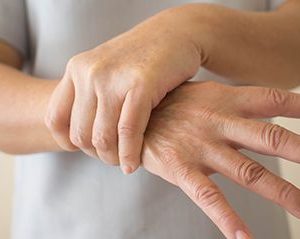- The Long-Term Effects of Daily Turmeric Supplements on Liver Health
- Could Your Grocery Store Meat Be Causing Recurring UTIs?
- Are You Making This Expensive Thermostat Error This Winter?
- Recognizing the Signs of Hypothyroidism
- 10 Strategies to Overcome Insomnia
- Could Artificial Sweeteners Be Aging the Brain Faster?
- Techniques for Soothing Your Nervous System
- Does the Water in Your House Smell Funny? Here’s Why
- Can a Daily Dose of Apple Cider Vinegar Actually Aid Weight Loss?
- 6 Health Beverages That Can Actually Spike Your Blood Sugar
Could Gut Bacteria Help Spur Parkinson’s Disease?

A recent study suggests that Parkinson’s disease, in which parts of the brain are progressively damaged over many years, may actually start in the gut.
Nearly 30% of the gut bacteria in patients with Parkinson’s disease differed from those without the disease, according to the study from British and U.S. researchers.
Study co-author Ayse Demirkan, a senior lecturer at the University of Surrey, noted that death and impairments due to Parkinson’s are increasing faster than any other neurological disorder worldwide. Diagnosed cases have more than doubled in the past 25 years.
“This is very concerning as there is no known cure,” Demirkan said in a university news release. “However, the more we learn about the causes of the disease, the more informed we can be in developing new treatments and, eventually, a cure.”
Parkinson’s is a brain disorder that can cause uncontrollable movements such as shaking, limb stiffness, and difficulty with balance and coordination.
Previous research had pointed to a possible link between gut bacteria and the disease, Demirkan said, though those studies were small.
This study recruited 490 people with Parkinson’s and 234 neurologically healthy individuals. Each provided a stool sample and information about themselves.
When samples were analyzed, researchers found that bacteria, genes and biological pathways differed by more than 30% in those with Parkinson’s compared to those without the movement disorder.
One example was the bacterial species Bifidobacterium dentium, which are known to cause infections such as brain abscesses. They were seven times higher in folks with Parkinson’s, while levels of Roseburia intestinalis, a bacterium is found in healthy colons, were 7.5 times lower. Constipation is a recognized symptom of Parkinson’s disease.
A cluster of bacteria known to cause infections — Escherichia coli, Klebsiella pneumonia and Klebsiella quasipneumoniae — were elevated in those with Parkinson’s.
“Our current research is not designed to answer whether the bacteria itself is the initial cause of the disease, some may also be a consequence of the disease, or may be even influenced by the genetic makeup of the individual,” Demirkan said.
The findings were published in Nature Communications.
More information
The U.S. National Institute on Aging has more on Parkinson’s disease.
SOURCE: University of Surrey, news release, Jan. 16, 2023
Source: HealthDay
Copyright © 2026 HealthDay. All rights reserved.










